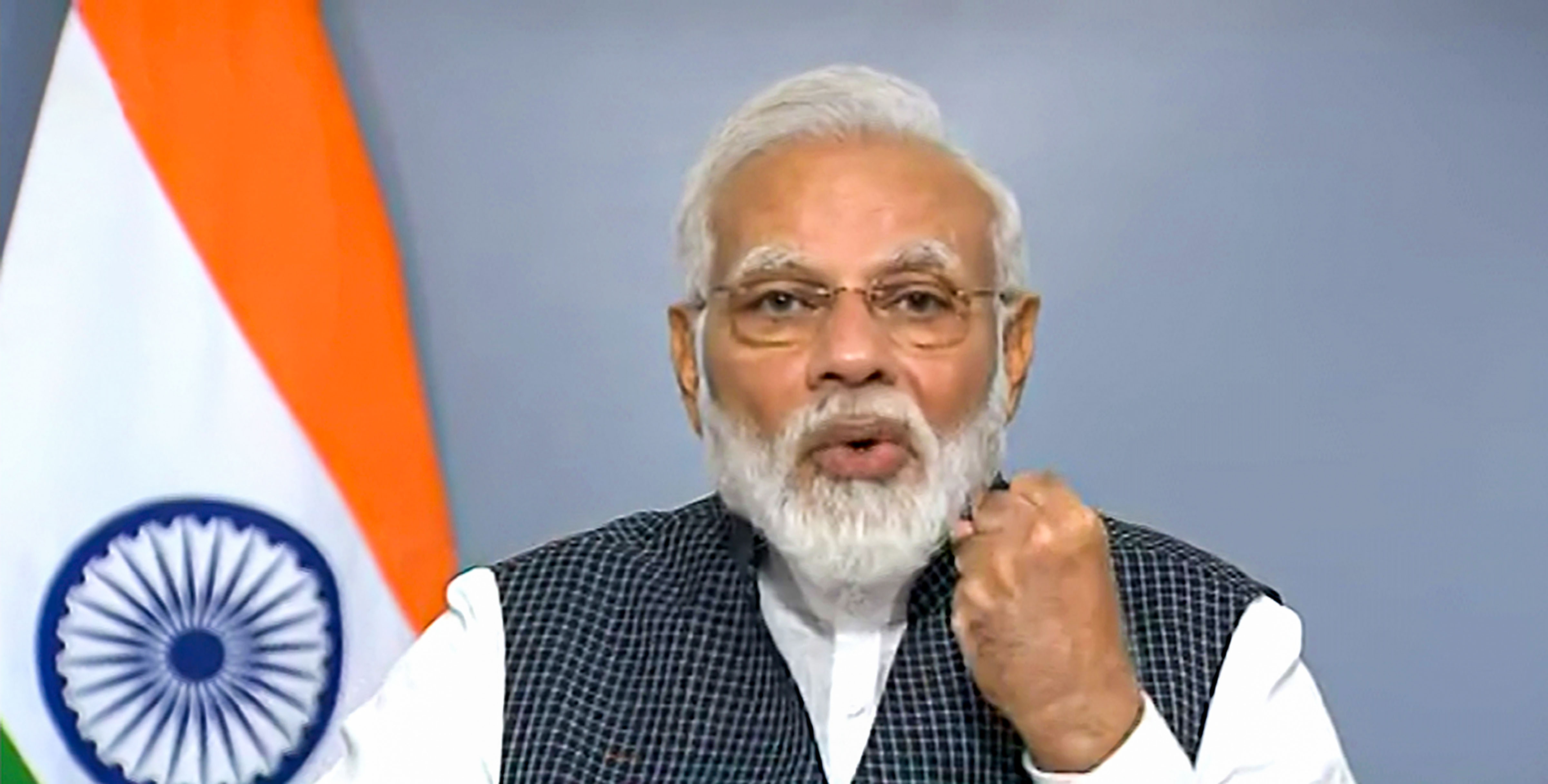
Modi proposes 'Einstein Challenge' in a tribute to Gandhi in NYT op-ed

Remembering Mahatma Gandhi on his 150th birth anniversary, Prime Minister Narendra Modi wrote an op-ed in The New York Times on Wednesday (October 2) where he proposed ‘Einstien Challenge’ to ensure Gandhi’s ideals are remembered by future generations.
Paying tributes to Gandhi in an article titled ‘Why India and the World Need Gandhi’, Modi described him as the ‘best teacher’ and ‘the guiding light’ who continues to give courage to millions globally and uniting those who believe in humanity.
“As a tribute to Gandhi, I propose what I call the Einstein Challenge. We know Albert Einstein’s famous words on Gandhi: Generations to come will scarce believe that such a one as this ever in flesh and blood walked upon this earth,” Modi wrote.
“How do we ensure the ideals of Gandhi are remembered by future generations? I invite thinkers, entrepreneurs and tech leaders to be at the forefront of spreading Gandhi’s ideas through innovation.”
Towards the end of the op-ed, Modi called the world to work together to put an end to hate, violence and suffering.”That is when we will fulfil Mahatma Gandhi’s dream, summed up in his favourite hymn, Vaishnava Jana To, which says that a true human is one who feels the pain of others, removes misery and is never arrogant. The world bows to you, beloved Bapu!” Modi wrote.
Also read: In Bengal, everyone wants a piece of Gandhi, but Swaraj is so 1947
For Gandhi, independence was not absence of external rule, but a deep link between political independence and personal empowerment, he wrote.
“He envisioned a world where every citizen has dignity and prosperity…Gandhi gave us the doctrine of trusteeship, which emphasised the socio-economic welfare of the poor. Inspired by that, we should think about a spirit of ownership. We, as inheritors of the earth, are responsible for its well-being, including that of the flora and fauna with whom we share our planet,” Modi said.
The prime minister also talked about the ideals epitomised by the apostle of peace who inspired such iconic leaders such as Martin Luther King Jr. and Nelson Mandela.
Modi stated that Gandhi possessed a “unique ability” to become a bridge between some of the greatest contradictions in human society and epitomised trust among all sections of society.
The prime minister also lauded Gandhi for combining ordinary objects like charkha, spinning wheel, and khadi with “mass politics” and asserts that he was never tempted by power.
“Who else could have used a charkha, a spinning wheel, and khadi, Indian homespun cloth, as symbols of economic self-reliance and empowerment for a nation?”, Modi asked.
“Who else could have created a mass agitation through a pinch of salt!… Through the Dandi March in 1930, Gandhi challenged the Salt Laws. His picking up a small lump of natural salt from the Arabian Sea shore led to the historic civil disobedience movement,” he wrote.
Modi noted that Gandhi’s movements stand apart from other freedom struggle globally and India mainly because of the wide-scale public participation. “He never held administrative or elected office. He was never tempted by power”, Modi wrote
Also read: Gandhi will continue to thrive in spite of attempts to turn his legacy on its head
Modi also explained how his government was trying to fulfil Gandhi’s dreams and is committed to do even more with the world and for the world.
“We in India are doing our bit. India is among the fastest when it comes to eliminating poverty. Our sanitation efforts have drawn global attention. India is also taking the lead in harnessing renewable resources through efforts like the International Solar Alliance, which has brought together several nations to leverage solar energy for a sustainable future.”


